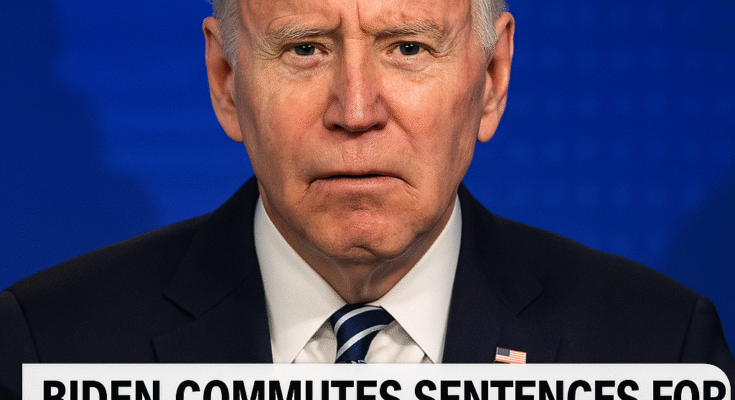President crecently announced the commutation of sentences for 37 out of 40 individuals on federal death row, changing their sentences to life without the possibility of parole. This decision has sparked considerable debate and raises questions about the administration’s stance on the death penalty.
Key Points of the Commutations:
- Rationale: President Biden stated that these commutations are consistent with the moratorium his administration imposed on federal executions, except in cases of terrorism and hate-motivated mass murder. He cited his career dedicated to reducing violent crime and ensuring a fair justice system, as well as his conscience and experience as a public defender and former Chairman of the Senate Judiciary Committee, as guiding his decision. He expressed his conviction that the use of the death penalty at the federal level must stop and that he could not allow a new administration to resume executions he halted.
- Who Remains on Death Row? Three individuals were not included in these commutations and will remain on death row. These include:
- Dzhokhar Tsarnaev, the Boston Marathon bomber.
- Robert Bowers, responsible for the Pittsburgh synagogue shooting.
- Dylann Roof, who committed the Charleston church shooting.
- Controversial Cases Commuted: Some of the individuals whose sentences were commuted were responsible for heinous crimes. Examples highlighted include:
- Thomas Sanders, who kidnapped and murdered Lexus Roberts.
- Anthony Battle, who murdered an Atlanta prison guard.
- Jorge Ayala-Torres, responsible for the brutal deaths of two young girls and later a naval officer.
- Criticism and Questions: The decision has drawn criticism, with some questioning the consistency and logic of Biden’s death penalty policy. Concerns were raised about whether a distinction was made based on the number of victims or the nature of the crime, and if the decision was a blanket one or involved a case-by-case review. The impact on the victims’ families, who had previously been promised executions, was also noted.
Broader Political Context:
This move comes at a time when the Democratic party is facing scrutiny. Recent focus groups, as reported by Politico, suggest that even some previous Democratic voters perceive the party as weak and overly focused on diversity and elites. Comparisons were made to an ostrich with its head in the sand, committed to failing ideas, and a complacent, lazy koala. Some participants felt the party is no longer a friend to the working class. This sentiment indicates potential challenges for the Democrats moving forward.
The commutation of these sentences is a significant development, prompting discussions about justice, mercy, and the future of the death penalty in the United States, all while the Democratic party navigates internal and external pressures.



